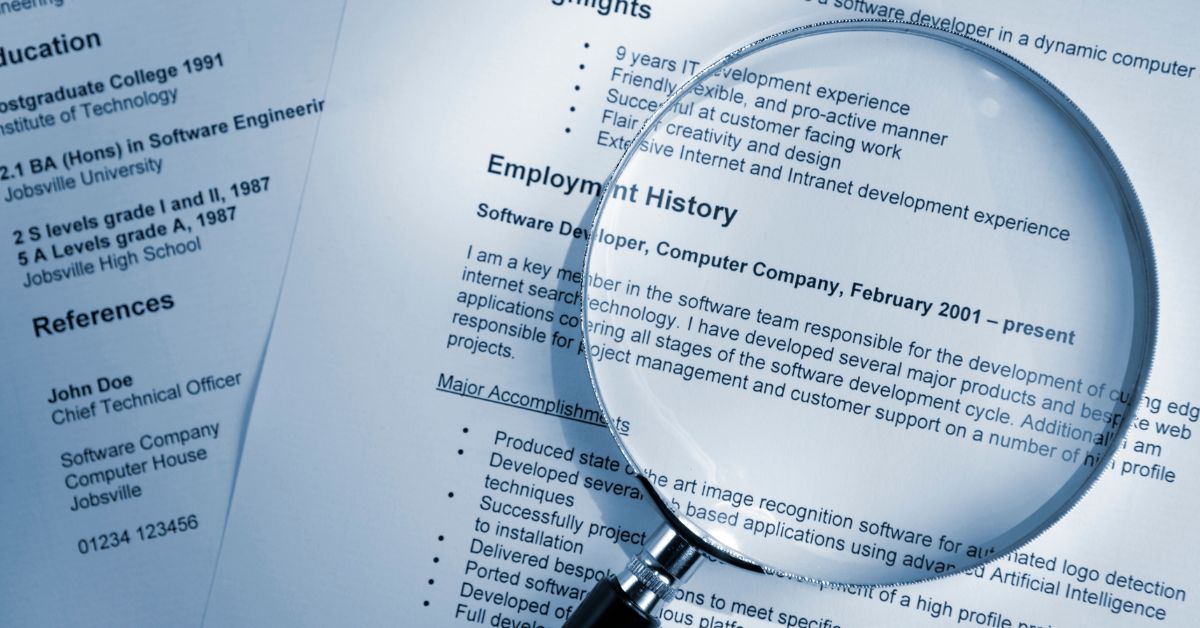Getting laid off is a hard experience, and often the thought of writing about the situation on a job application makes you feel anxious. Nevertheless, by using the suitable method, you can actually highlight your comeback power, development, and good manners out of this difficult case. To employers, it is quite understandable that failures can take place — but what counts is how you react to them.
This article outlines the best ways to describe the nature of the last job failure in the cover letter, as well as during interviews and on the job application form, without losing emphasis on the strong points and the potential for the future.
Understanding Job Termination
Job termination doesn’t have to define your career. It may happen for several reasons, such as company restructuring, downsizing, or performance issues. Regardless of the reason, the key is to approach it with honesty, brevity, and a focus on growth.
1. Be Honest but Brief
If you are telling your story during an interview or explaining termination in a job application letter, don’t use too many words. Your explanation should be brief and kept at the appropriate level of professionalism. For example:
“Due to the company’s restructuring, the elimination of my position took place.”
Or, when it is related to performance:
“I have not only recognized areas for improvement but also made considerable progress with time management and communication skills through this journey.”
The aim is to respond to the issue without getting stuck in it.
2. Use Your Cover Letter Strategically
If you want to see your termination story in a positive light, then your cover letter for job can be of great help to you. By accepting the dismissal, you can indicate it in your letter, which will show you as a person who has learned from the situation.
Example Composition:
- Introduction: State briefly who you are and the position that you would like to take up.
- Acknowledgement: Without providing too much detail, communicate the dismissal in a neutral or professional tone.
- Improvement and Skill Increase: Discuss what you learned and how much better you made yourself.
- Closing with Future Benefits: Suggest your excitement for the new opportunity in the concluding paragraph.
For example:
“While my last role ended due to performance challenges, I took that time to upskill and improve my abilities. I’m now confident in my capacity to contribute effectively in this position.”
Outspark has a cover letter maker that you can use to make effective cover letters for your next job application.
3. Highlight Your Achievements
A lack of termination still doesn’t mean that a person's contributions to a certain job or organization become insignificant. Your resume or work application letter can be a place where you show – by numbers, facts, and achievements, how no issue in the workplace has been able to dampen your professional skills/abilities, greatly facilitated by you. The result focuses on the dismissal, but your worth to the company is brought to light instead.
4. Addressing Termination in Interviews
Assuming that the subject of termination comes up during an interview, here is a way to give a courteous answer:
- Truth: Never lie – the employer usually does reference checks.
- Take Responsibility: Own your part in the situation without being overly negative.
- Show Growth: Share what you learned and how you’ve improved.
- Stay Positive: Keep the conversation future-focused.
For example:
“I wasn’t the right fit for the role at that time, but I learned the importance of clear communication and now apply that skill in every project I take on.”
5. Focus on the Future in Your Job Application Letter
If you want to stand out among other applicants in your job application letter, you should emphasize your skills, indicating that they fit the job the best.
Example Format:
- Introduction: Express interest in the role.
- Key Skills and Achievements: Highlight your strengths
- Recognition of Discharge: Just mention it, focusing on the abilities you have gained.
- Match with the Position: Demonstrate how your qualities make you the optimal candidate for the new vacancy.
This method not only convinces the recruiters that you have evolved but also that you are ready to bring in value.
6. Customize Each Application
Keep one work application letter and send it everywhere. Instead, adapt your letter for the particular job and company. This indicates that you’ve put thought into your application and are genuinely interested.
7. Leverage References
Good references will counteract any concerns that may arise due to termination. Don’t hesitate to ask former colleagues, clients, or supervisors (not directly tied to your termination) to say that you are skilled, dependable, and professional.
8. Showcase Continued Growth
Showing that you are always working on your skills and developing new ones makes employers comfortable that you are past the disruption. Let them know about studies, certifications, or freelance jobs that you have done since your last job. Outspark encourages people to incorporate these details in their job application form or cover letter as evidence of their proactive stance.
9. Utilize Online Applications Wisely
In certain cases, a job application form may require you to explain the reason for your last job. Go for a short and professional explanation:
- Option 1: “The Company was restructured and my position was eliminated.”
- Option 2: “Looking for opportunities that were more in line with my skills and career goals.”
10. Stay Positive and Confident
Confidence is key when addressing a termination. Employers are less concerned about the fact that you were terminated and more interested in how you’ve grown from it. Keep your tone professional, optimistic, and future-focused.
Final Thoughts
It may take some time until the offering of a termination sounds quite uncomfortable; however, with the proper approach, you will be looked at as a strong competitor. Firstly, tell the truth, keep a positive mindset, and also incorporate your development and accomplishments.
Thanks to the effective job application letter format, your skill-centric job-tailored application, along with your personal narration, can be a major factor in the turning point of your career. Do not forget that a single fall in no way defines one’s career path.
If you follow Outspark’s expert advice, your work application letter will no longer just be a static document but rather a powerful tool that makes recruiters confident in your value and gets you a step closer to success.



